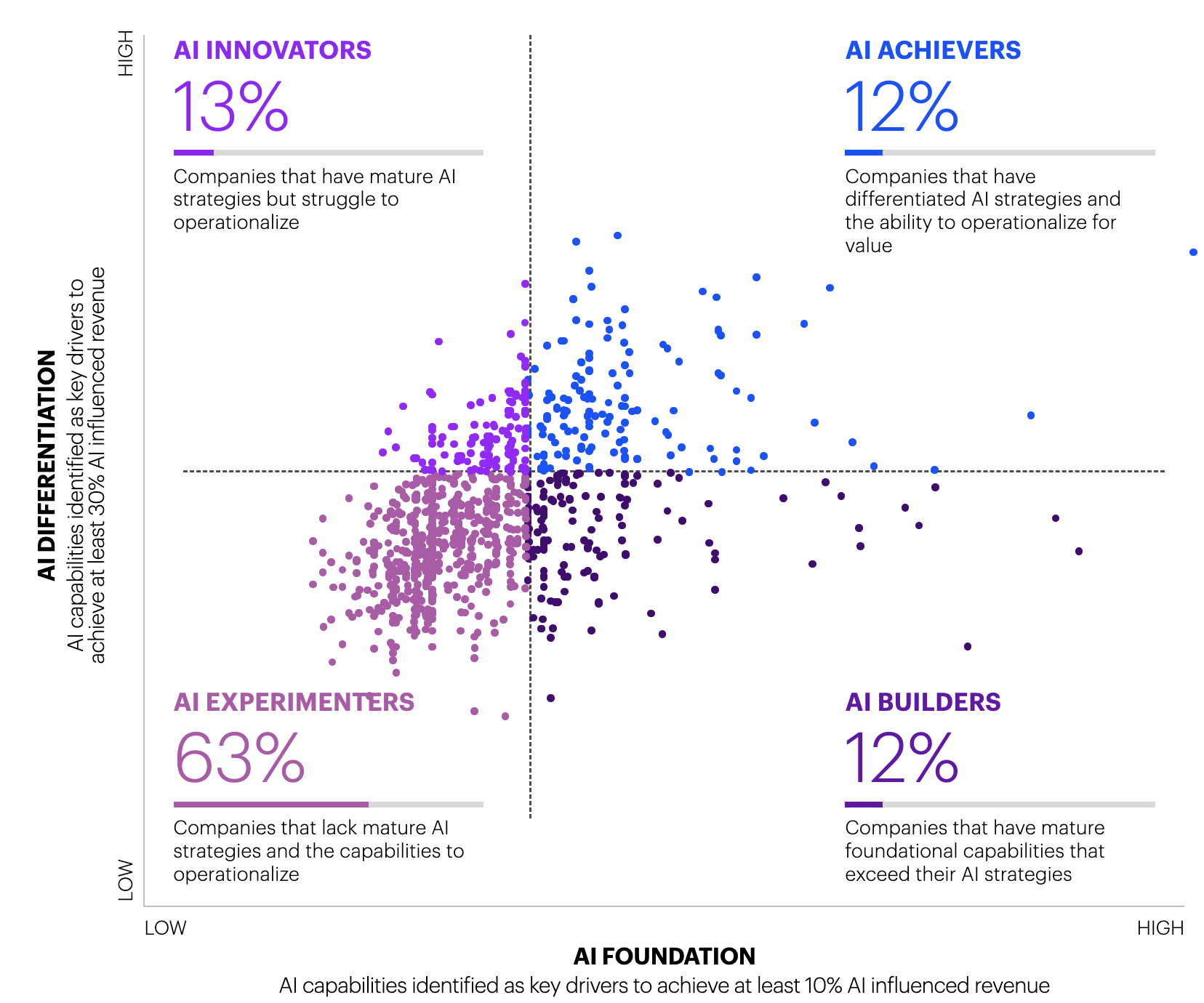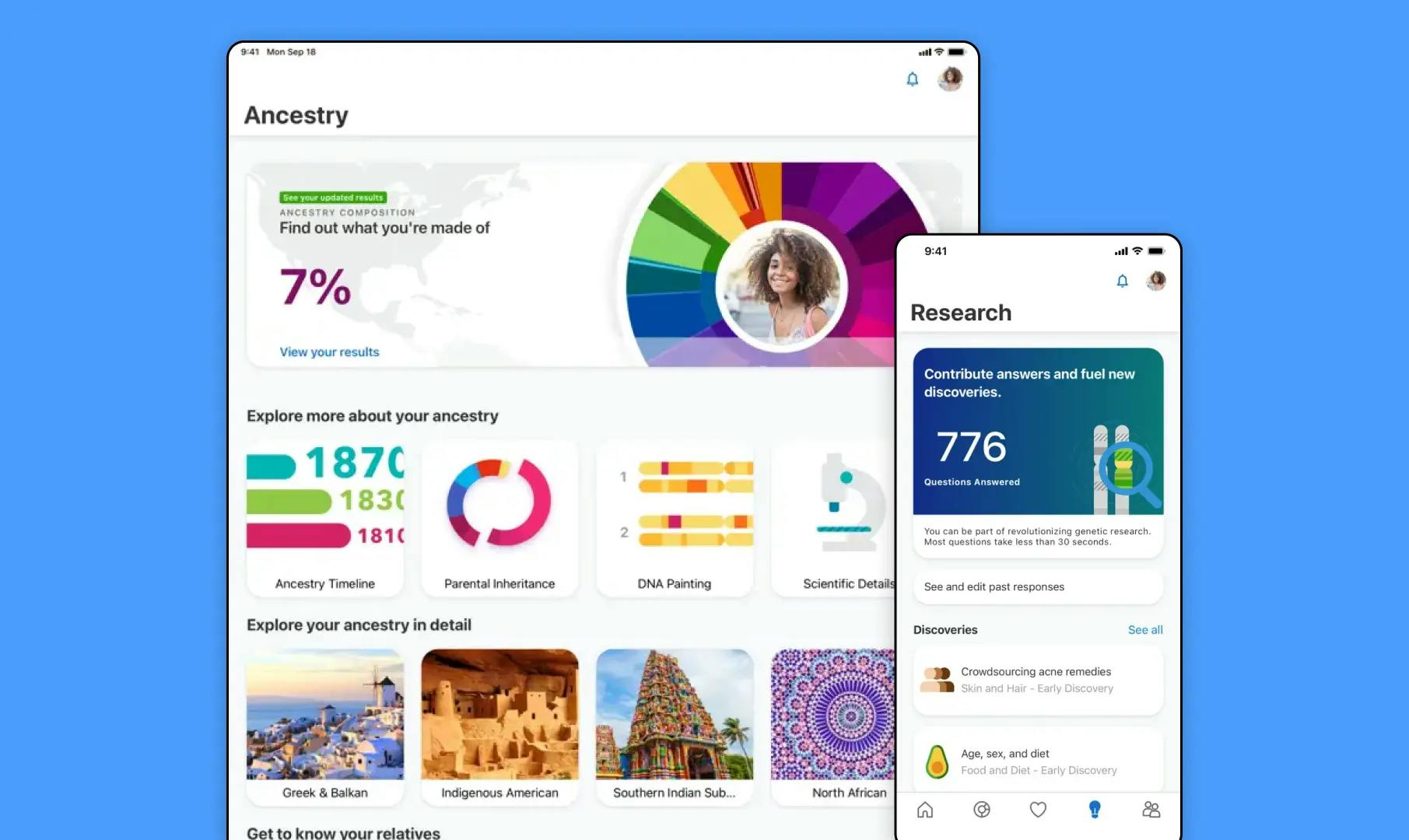
Artificial Intelligence
Accelerating AI Adoption: Seamless Integration, Great UX, and Swift Market Entry
Introduction
In today's hyper-competitive business landscape, artificial intelligence (AI) has evolved from a mere buzzword into a transformative force. AI is no longer a luxury but a competitive necessity, enabling businesses of all shapes and sizes to achieve unprecedented levels of efficiency, performance, and innovation.
The latest annual McKinsey Global Survey on the current state of AI confirms the explosive growth of generative AI (gen AI) tools. “Less than a year after many of these tools debuted, one-third of the survey respondents say their organizations are using gen AI regularly in at least one business function.”
Firms small to large, across countless industries, are exploring these tools for good reason:
A recent in-depth report estimates that “generative AI alone could add up to $4.4 trillion in value across industries through writing code, analyzing consumer trends, personalizing customer service, improving operating efficiencies, and more.”
So why now, and where to start?
If you feel behind without a formal strategy in-place, you aren’t alone. According to data offered by Accenture, 63% of firms are merely experimenting with AI (without a formal strategy or operational capability in-place).

In this article, we'll discuss three critical strategies for AI-based businesses to stay ahead of the curve: seamlessly integrating AI into existing products, platforms and work-streams, , ensure a great user experience, and embracing a sense of urgency to stay competitive within the market.
Seamless AI Integration
Another crucial element is the seamless integration of AI into existing products, platforms and work-streams. AI should not be a disjointed addition but rather a cohesive part of the ecosystem, enhancing the functionality of the products or services it supports.
Agnostic to the size of the firm, there is a clear argument for the exploration of AI within products and professional work environments. In a recent study by Deloitte Digital revealed that “generative AI users report saving an average of 11.4 hours per week, enabling them to focus on higher-value or more strategic tasks” This signals opportunities for meaningful cost/budgetary savings, value creation, and improved value capture within existing paradigms.
According to McKinsey, the top objective for large and small organizations’ generative AI strategy is integrate AI-based features or insights.

For firms of all sizes, this means that organizations are exploring how to integrate AI meaningfully into their current products and work-streams, with user, consumer and employee experience rightfully at the top of that adoption dependency.
For businesses, especially smaller firms like startups, adopting a "full-stack" approach can significantly reduce time-to-market. Without the complexities of negotiating and integrating with external entities, startups can innovate, iterate, and deploy AI solutions rapidly. This speed and agility can make the difference in capturing market share and meeting critical market needs before competitors.
Great User Experiences
The importance of delivering an exceptional user experience cannot be overstated, even in the case for leveraging data; however, all the data in the world has limited value if it is inaccessible.
In a recent report from the Deloitte AI Institute, it is noted that “(a massive data warehouse) is not a strategic asset if people can’t effectively find and pull the information from it when they need it.”
Considering this dependency on users having accessibility to the data, a user-friendly interface, intuitive design, and clear communication of results are key elements of a successful AI adoption strategy. A well-designed AI system not only provides value, but also ensures that users can easily interact with it, comprehend its functions, and trust the outcomes. Users should feel empowered by AI, not overwhelmed.
To achieve this, businesses should invest in user-centric AI design, conduct thorough usability testing, and iterate based on user feedback. Great user experiences not only enhance customer satisfaction but also foster loyalty and advocacy, ultimately driving success in the market. For firms aspiring to learn more about how user research creates value, check out our recent article on the topic.
Be Fast to Market
Speed to market is not only a competitive advantage, but often correlated to defensibility in the rapidly-evolving technology market. New entrants and startups, in particular, have a unique opportunity to innovate, iterate, and deploy solutions rapidly, using their nimbleness to their advantage.
However, this sense of urgency isn't exclusive to startups. Established businesses must also embrace a proactive approach. The AI landscape is rapidly evolving, and waiting until Q4 of 2024 to launch a product or service might mean missed opportunities, playing catch-up or worse, losing marketshare to a competitive challenger.
Edward Tsai, Managing Partner at Alumni Ventures told TechCrunch that “VCs and startups may want to temporarily reduce their focus on defensibility, and increase their focus on products that deliver compelling value and focusing on speed to market (presuming a massive TAM).”
AI adoption is not slowing down, but rather gaining momentum. Organizations that hesitate may find themselves falling behind their more proactive counterparts. The market rewards those who are quick to adapt and capitalize on emerging trends.
Conclusion
In the era of AI, businesses must prioritize seamless integration, intuitive user experiences, and speed to market. Great user experiences increase adoption, build trust, and maximize value creation. Seamless integration ensures AI becomes a natural part of your product ecosystem. Speed to market is vital for both startups and established businesses to stay competitive in a rapidly evolving landscape.
From consumer eCommerce experiences such as product recommendations, to back office solutions such as data-inspired insights and generated content, leveraging AI is no longer a choice, but a necessity for businesses across the board. Whether you're developing cutting-edge AI solutions or incorporating AI into existing products, the imperative is clear: prioritize UX, streamline integration, and seize the moment.
Let your AI innovation journey be accelerated with the right AI consulting partner, that offers the right AI/ML services and capabilities, at the right time.
Learn more about how we design and build intuitive frontend solutions that utilize advanced data, AI, and ML models

We're at the forefront of change in the AI-ML industry. Having helped innovative clients across multiple industries, from MedTech and FinTech to Media and eCommerce, we know how to translate the unique needs of your product and users into transformative outcomes that achieve impact.
About Scalio
Scalio is a global digital product agency driving digital success in over 30 industries. Through expert engineering, strategy, and design, we build and scale platforms and digital experiences for global brands.
Learn more about our expertise in your industry.
_
If you have more questions or interest in meeting Scalio Leadership Team, feel free to reach out for a friendly follow-up!

Lawrence Valenti
CCO | Managing Partner
Email: [email protected]
LinkedIn

Joshua Lucas
COO | Managing Partner
Email: [email protected]
LinkedIn

Micah Lucas
CTO | Managing Partner
Email: [email protected]
LinkedIn

Bradley Greenwood
CEO | Managing Partner
Email: [email protected]
LinkedIn






